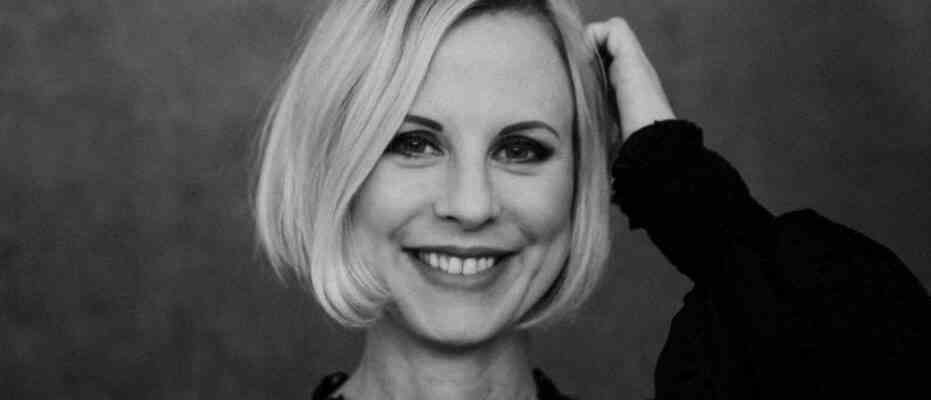“The world out there is waiting / not for words – waiting for change,” wrote Kathrin Niemela in September 2017 in Café La Poesía in Buenos Aires – whether in a notebook, whether in her mobile phone or a laptop, we don’t know. The only thing that is certain is that the lines are now printed on page 50 in the author’s first volume of poetry. It is also certain that the world is now not exactly impatient, but rather anxiously awaiting further change. She may not be waiting for words either, but it’s good that they are there – including those of Kathrin Niemela, who writes in the last verse of the poem entitled “Café La Poesía”: “I scrape free what I want to bury” .
Kathrin Niemela, born in Regensburg in 1973, lives there as well as in Passau – and all over the world. “Lively Somewhere” she writes on her website about herself as a “cosmopoietin”, who works part-time in medical technology. The poems in her first volume “when I’m ashen, I’ll learn kanji” actually testify to an intense pre-pandemic globetrotting: they were written in Paris, Santiago de Chile, Baltimore, Riga, Tokyo or Buenos Aires, and tell of Kaliningrad or Vienna .
The author received the Irseer Pegasus jury prize for one cycle of the volume
In terms of content and atmosphere, the texts are docked to the places where they were created, as in the poem “Bad in Shibuya”, which contains the eponymous line and refers, among other things, to “Kanji” as a Japanese character. But the thoughts of the lyrical I meander on and on. Again and again it is about his own location in the world – “I cut myself on being”. Or, in a playful way, about love: “in between we, stayed in love somewhere”, in the global digital space. It is often discussed as well; we “scrollten am Sommer” or “posten hygge” is what you read in the cycle “the sweetness under the marmelade mold” – for this cycle Kathrin Niemela received the Irseer Pegasus jury prize last year.
However, these poems, which are underpinned by many literary quotations, also repeatedly wander from the present into the past. There are lines about the grandfather, who “almost died” in the war, as well as reflections on the family’s East Prussian past: “The language will be blown away over the years / Words will gather for the end of something”. Again and again, in the verses, which only superficially appear airy and light, the effort of this author to better understand the changing world becomes visible. And to ask difficult questions: “How to / put things in order without / breaking the mystery?”
Kathrin Niemela: “when I’m ashen, I’ll learn kanji”, Parasite Press Cologne 2021, 88 pages. Niemela will be reading with Birgit Merk and Katharina Kohm on Saturday, April 2, 4 p.m. in the Munich bookshop Literatur Moths (Rumfordstrasse 48, free admission, registration: [email protected]).

